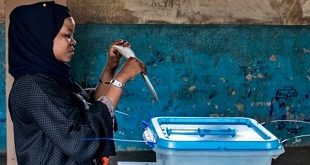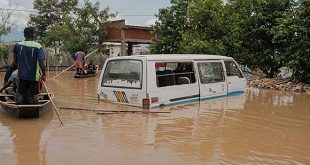
Harnessing ways to make it work
Kampala, Uganda | Patricia Akankwatsa | Africa suffers more than its fair share of communicable and non-communicable diseases. Over 90% of the world’s malaria deaths and 70% of all people living with HIV/AIDS are in Africa.
More access to good medicines could significantly reduce this needless human toll. Today, Africa only produces about 0.1% of the global supply of vaccines. This is a market failure which has cost lives and urgently needs to be fixed.
The COVID-19 pandemic has further exposed Africa’s vulnerabilities in ensuring access to vital drugs, vaccines and health technologies and more and more African governments view the supply of safe, effective and affordable medicines and vaccines as a national security issue.
The big question is not whether Africa should have more vaccine manufacturing capacity, but how. Vaccine markets can be precarious, and “build it and they will come” approaches rarely work, if ever.
Without careful planning and coordination, the danger is that even with significant capital investment, many of these initiatives will not survive in the long term, and those that do could have unintended negative impacts on existing vaccine markets. So, for any venture to succeed, a new comprehensive approach is needed.
While speaking at the second Conference on Public Health in Africa (CPHIA), Dr Matthew Downham, the director of manufacturing and supply chain network, at Coalition for Epidermic Preparedness Innovations (CEPI), said preparing for emerging infections requires geo-diversified vaccine manufacturing and supply through inter-epi/pandemic periods, particularly in underserved regions.
“To improve vaccine manufacturing capacity and capability, there is a need to champion oversight and leadership to deliver identified opportunities,” he said.
He also added that there is a need to deliver the required infrastructure, workforce, training, regulatory needs, and public-private partnerships.
According to Gavi, expanding vaccine manufacturing in Africa represents a huge opportunity to improve health security across the continent. But it also represents a potentially even larger opportunity, not just to protect African citizens from a wide range of infectious diseases, including those that particularly affect the region, but also to establish African vaccine manufacturers as important global suppliers.
Dorcas Noertoft, the director of procurement services at UNICEF supply division, in Copenhagen says that UNICEF is willing to support vaccine manufacture by buying from new African suppliers once they are prequalified in suitable markets.
“We will support through manufacturer engagement, signalling through industry consultations, webinars and specific wording in tenders. UNICEF is keen to build the capacity of African suppliers to engage with us guiding what to
manufacture, building capacity on selling through pooled, public procurement,” she added.
 The Independent Uganda: You get the Truth we Pay the Price
The Independent Uganda: You get the Truth we Pay the Price


